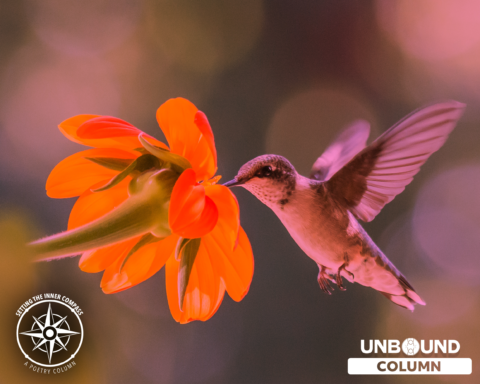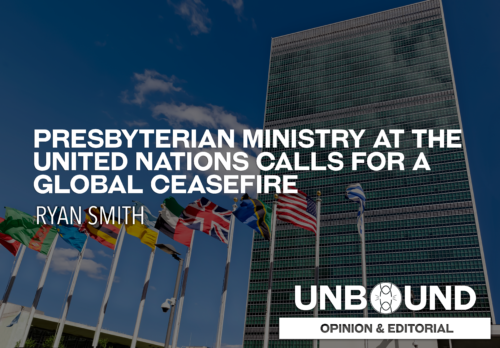Reading poetry is one of the ways some of us nourish our faith, a way we set or reset our inner compass and stay focused on the big picture, on the spiritual journey. I know that is true for me. This is the first entry in a new poetry column on Unbound called Setting The Inner Compass.
In this monthly column, I will briefly introduce and share two or three poems. This column builds on the five-part National Poetry month series in April. In the wrap up to that series, I suggested using an approach similar to Lectio Divina when we read a poem for spiritual companionship.
The poems for May are by Vermont based poet, David Budbill. David’s poems are direct and clear. After he died in 2016, his obituary in the New York Times described him as “a people’s poet.” Quoting the journal Parnassus, the obituary said David was “as accessible as a parking lot and as plain as a pair of Levi’s.” David Budbill attended Muskingum College before attending Union Theological Seminary in New York. He graduated from Union in 1967 with a MDIV.
As someone who hikes on Mount Rainier every summer, the poem “Summer’s Here“ is descriptive of my experience as well as being a metaphor that reminds us that at times things that are worth doing are not easy. The last line is clear and true in many ways.
The second poem, “What We Need,” feels very connected to the realities of spring 2020. In the midst of resistance and engagement, we need to take time to nourish the spirit.
I added a third poem when I learned that Joy Harjo was appointed by the Library of Congress to a second term as U.S. Poet Laureate. A member of the Muscogee Creek Nation, she is the first Native American to serve in that position. A musician as well as a poet, Ms. Harjo is the 23rd U.S. Poet Laureate.
I am grateful and appreciative of the generosity of both publishers in granting permission to share these poems.
The Poems
“Summer’s Here”
by David Budbill
Summer’s here and we can hike the peaks again,
have lunch and tea on mountaintops, look down
on the backs of circling hawks and laze away
the afternoon watching blue-hazy, distant hills.
Come on! Give up those winter blues. Let’s go!
Grease up those boots, find that walking stick.
Get your lungs and legs in shape. And don’t forget
what Yuan Mei, said, two hundred years ago:
If you begrudge your feet some pain
you’ll miss ten thousand peaks.
“What We Need”
by David Budbill
The Emperor,
his bullies
and henchmen
terrorize the world
every day,
which is why
every day
we need
a little poem
of kindness,
a small song
of peace
a brief moment
of joy.
“Perhaps the World Ends Here”
by Joy Harjo
The world begins at a kitchen table. No matter what, we must eat to live.
The gifts of earth are brought and prepared, set on the table. So, it has been since
creation, and it will go on.
We chase chickens or dogs away from it. Babies teethe at the corners. They scrape
their knees under it.
It is here that children are given instructions on what it means to be human. We make
men at it, we make women.
At this table we gossip, recall enemies and the ghosts of lovers.
Our dreams drink coffee with us as they put their arms around our children. They laugh
with us at our poor falling-down selves and as we put ourselves back together once
again at the table.
This table has been a house in the rain, an umbrella in the sun.
Wars have begun and ended at this table. It is a place to hide in the shadow of terror.
A place to celebrate the terrible victory.
We have given birth on this table and have prepared our parents for burial here.
At this table we sing with joy, with sorrow. We pray of suffering and remorse.
We give thanks.
Perhaps the world will end at the kitchen table, while we are laughing and crying,
Eating of the last sweet bite.
“Summers Here” and “What We Need” reprinted from While We’ve Still Got Feet: New Poems by David Budbill © Copper River Press, 2005. Used with permission of the publisher. All rights reserved.
“Perhaps the World Ends Here” reprinted from The Woman Who Fell from the Sky by Joy Harjo (c) 1994, 1996 by Robert Alter. Used with permission of the publisher, W. W. Norton & Company, Inc. All rights reserved.
Rev. Dave Brown is the former pastor of Immanuel Presbyterian Church in Tacoma, the creator/host of Blues Vespers and a member of the PCUSA Public Education Roundtable.






Unbound Social